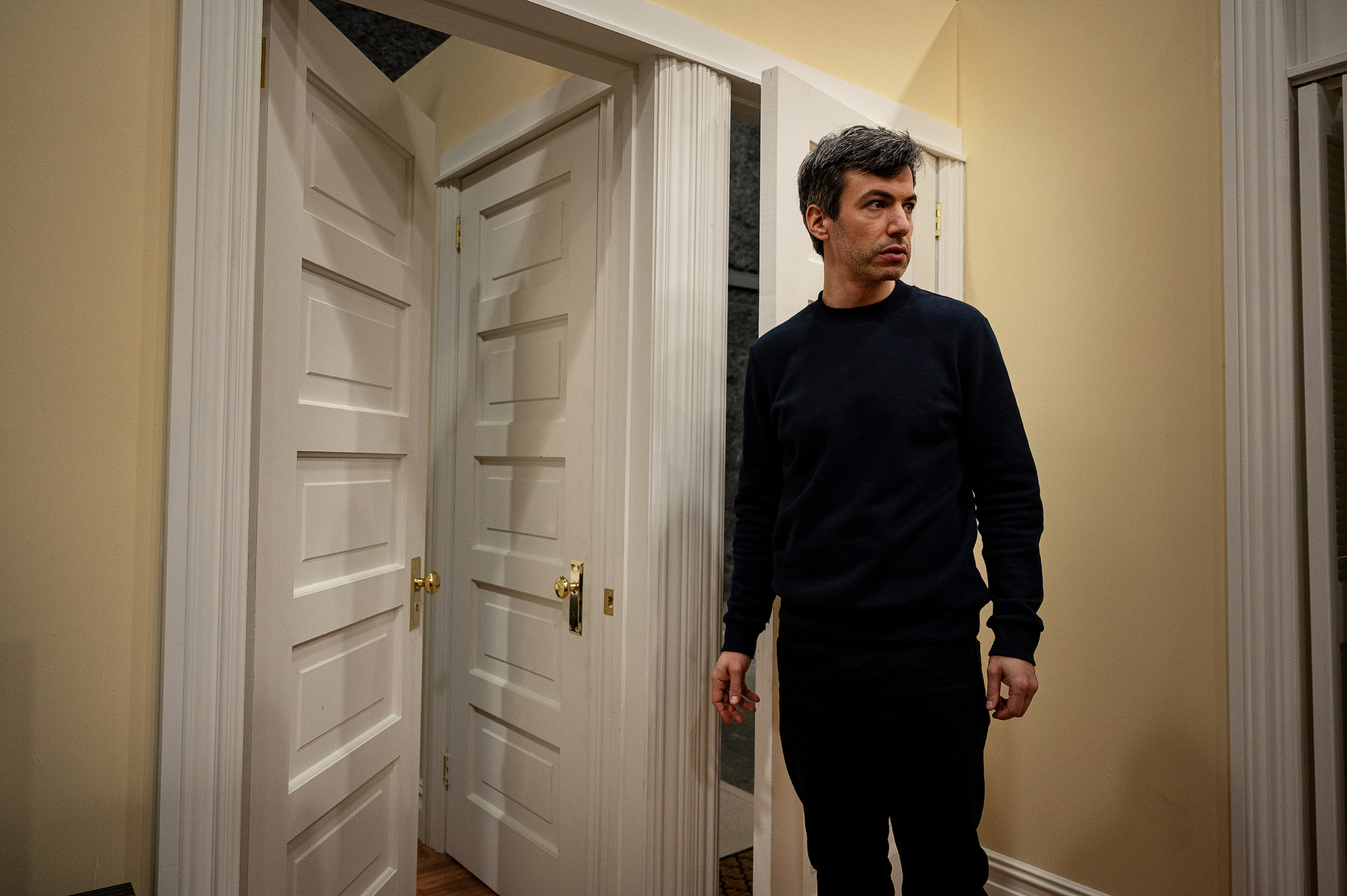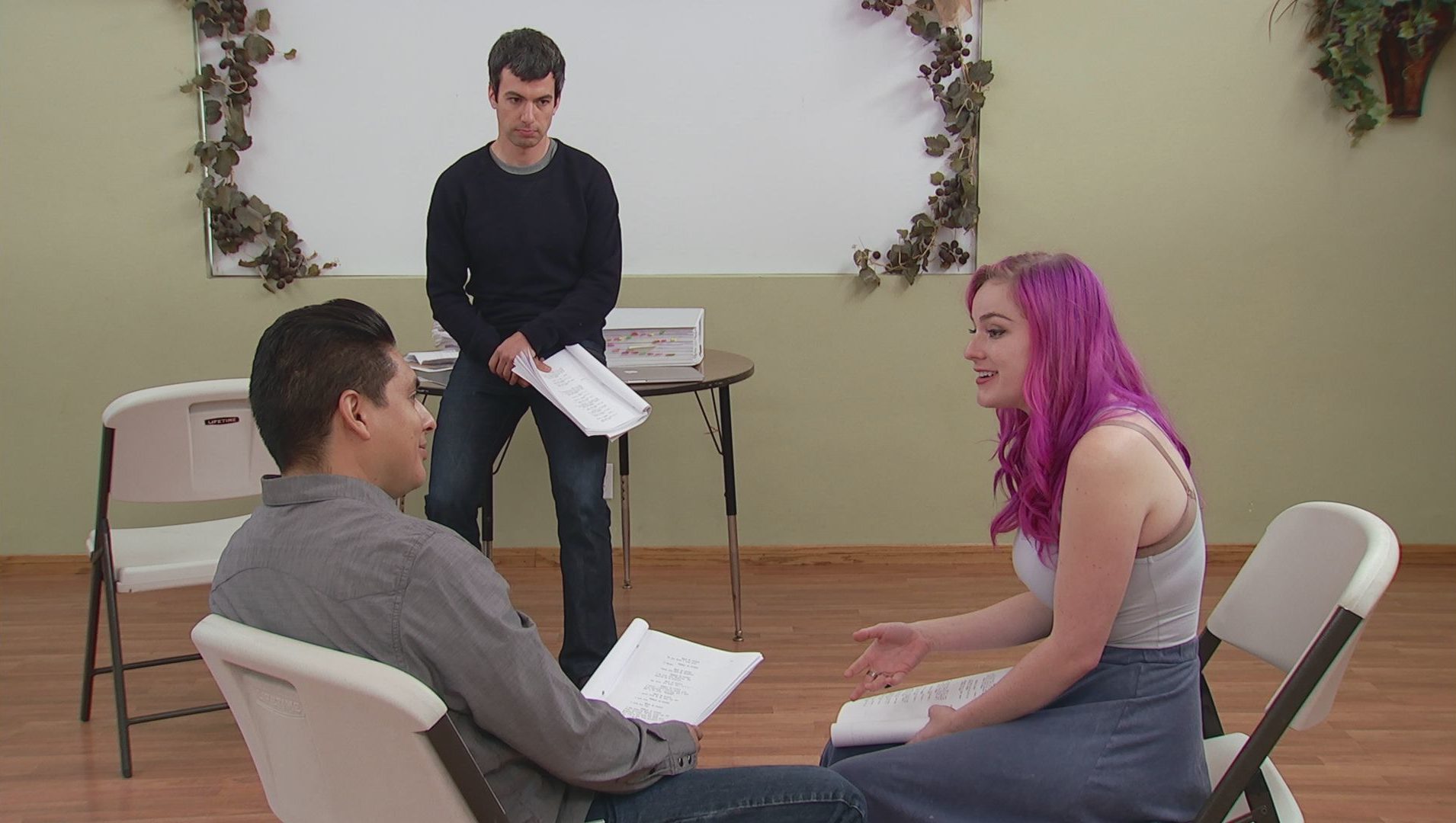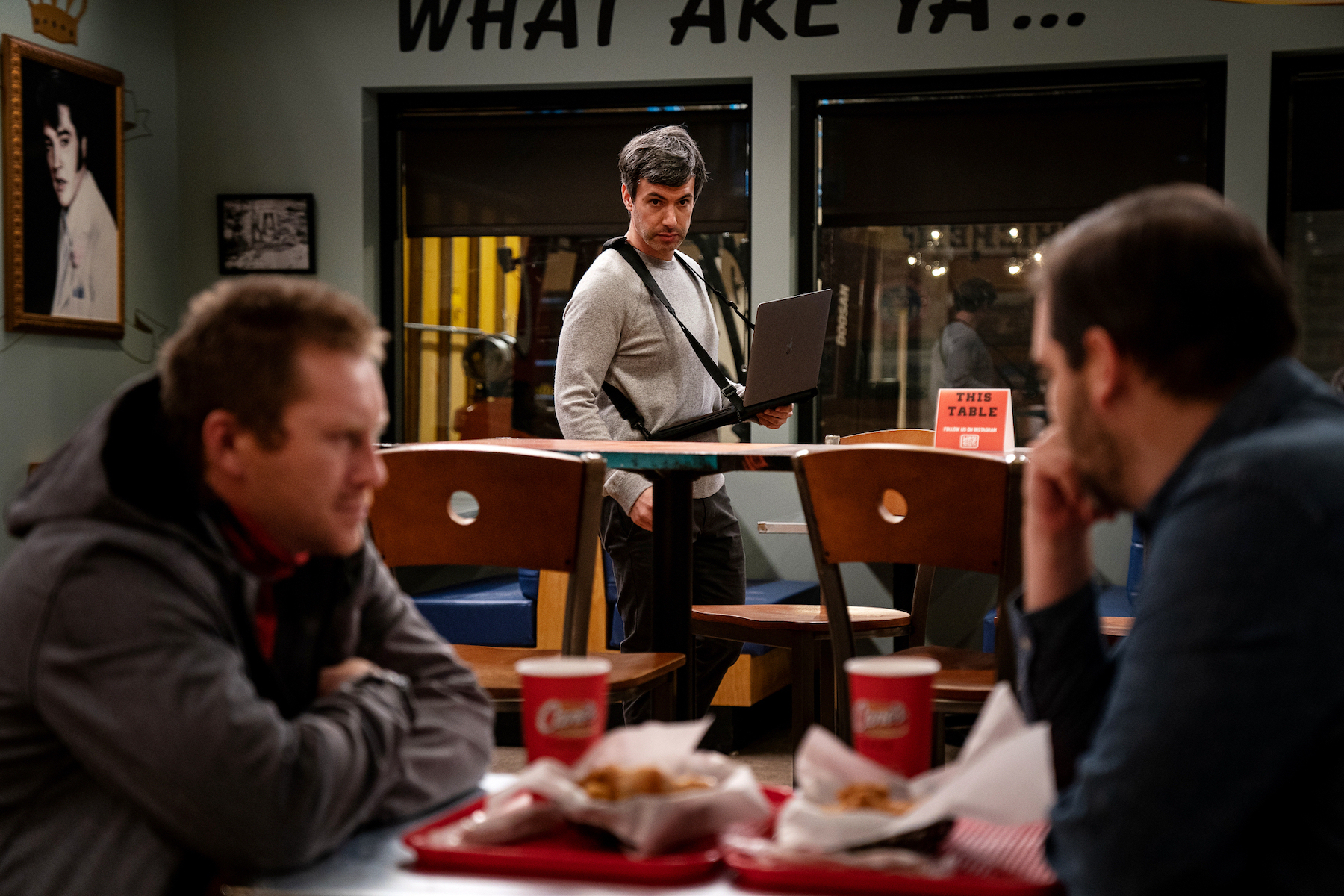The dash joins and the dash moves along. For the Dash column, Ren Ebel enters the vertiginous warren of Nathan Fielder’s limited series, The Rehearsal, which concluded its first season in August 2022—and returns with a scrap of hope.

The Rehearsal, production still, November 4, 2020. © HBO. Photo: David M. Russell.
While I was in the MFA program at ArtCenter, Nathan Fielder’s delirious parody of reality television, Nathan for You, seemed to come up during critiques as often as, if not more than, the work of any gallery artist. Hosted by the coercive, monotonal, dubiously self-proclaimed “expert” played by Fielder, each episode would expand a haywire business strategy (e.g., saving money on exporting smoke detectors by marketing them as musical instruments) into a painstaking Rube Goldberg machine of trick props, secret compartments, doppelgängers, PR hoaxes, legal loopholes, and legerdemain, all brined in the ominous, amoral tone of the dawning Trump era. Prism-like, Nathan for You could be discussed as performance, as cinema, as sculpture, or as subversive pop, though it hardly needed art school reverse-Imagineering to justify its significance. The show was mesmerizing and viciously funny, owing largely to Fielder’s unwavering commitment to the bit.
Developing Nathan For You’s adventurous form while scaling back its overt goofiness, Fielder’s six-episode HBO series The Rehearsal, which concluded in August, is as brilliantly warped and gnarly as its predecessor. The basic premise involves offering participants the opportunity to practice difficult upcoming life events by staging pre-enactments within Fielder’s panopticon of replica sets, paid actors, and hidden cameras. Though initially tamer than Nathan For You’s aggressively chaotic-neutral host, Fielder’s character again serves to constantly overstep and impose his whims onto each situation, tightening the screws until things fall apart, then further complicating matters by applying the same faulty if-then reasoning to “fix” his mistakes.

Nathan For You, “Smokers Allowed,” S3:E5, 2015. Video still. Courtesy of Comedy Central.
Owing to its patina of arty anthropological experiment, and its high-profile venue, The Rehearsal attracted critics who brushed off the less sophisticated-seeming Nathan For You. Richard Brody, the New Yorker movie critic, notably interpreted the show as the work of a smug, clinical numbers man, and suggested that the production could have been more transparent, and thus more truthful, by granting each of the show’s participants a platform from which to speak their mind.
But this isn’t the kind of truth Fielder is after. The Rehearsal offers something very different. Call it a post-meta cautionary fable, starring fictional agonist Nathan Fielder: uneasy, mercurial, thirty-eight-year-old comedian with Lego hair who, desperate to connect meaningfully with others, elbows his way into the spotlight of his own metastasizing nightmare theater of nested pseudo-realities. The opacity Brody condemns is in fact foundational. Alienated, trapped in a rat maze of simulations tailored to our tastes by hidden directors with obscure motives, we recognize ourselves squirming around in Fielder’s machine.

The Rehearsal, “Gold Digger,” S1:E3, 2022. Courtesy of HBO.
Predictably, The Rehearsal’s finale, “Fake Daddy,” finds Fielder so lost in the sauce that he has trouble distinguishing which performance he’s in, or who he’s supposed to be playing. But the plot is only important insofar as it indexes an absurd, algorithmic logic—not in the mind of the character Nathan, who stares blankly from the edge of his creation, fastidiously charting possible permutations on a waist-mounted laptop—but designed by the artist/magician Fielder in order to dramatize the ridiculous contortions we make in the service of believably faking our best life. What makes The Rehearsal, and Nathan For You, so funny and zeitgeisty is the way the pressures of Fielder’s monumental fakery cause a lapse in a character’s manicured behavior, laying bare what might be called our less programmable instincts: self-delusion, contradiction, malaise, bad faith—but also a strange sweetness. Partway through “Fake Daddy,” Fielder breaks character mid-scene to ask the child actor playing his son whether he thinks he’s “believable as a dad.” The boy considers this for moment, artfully searching for an answer that might be both truthful and kind. “I mean, you’re a great scene partner.” x

Ren Ebel is an artist and writer from California. He currently lives in Spain.